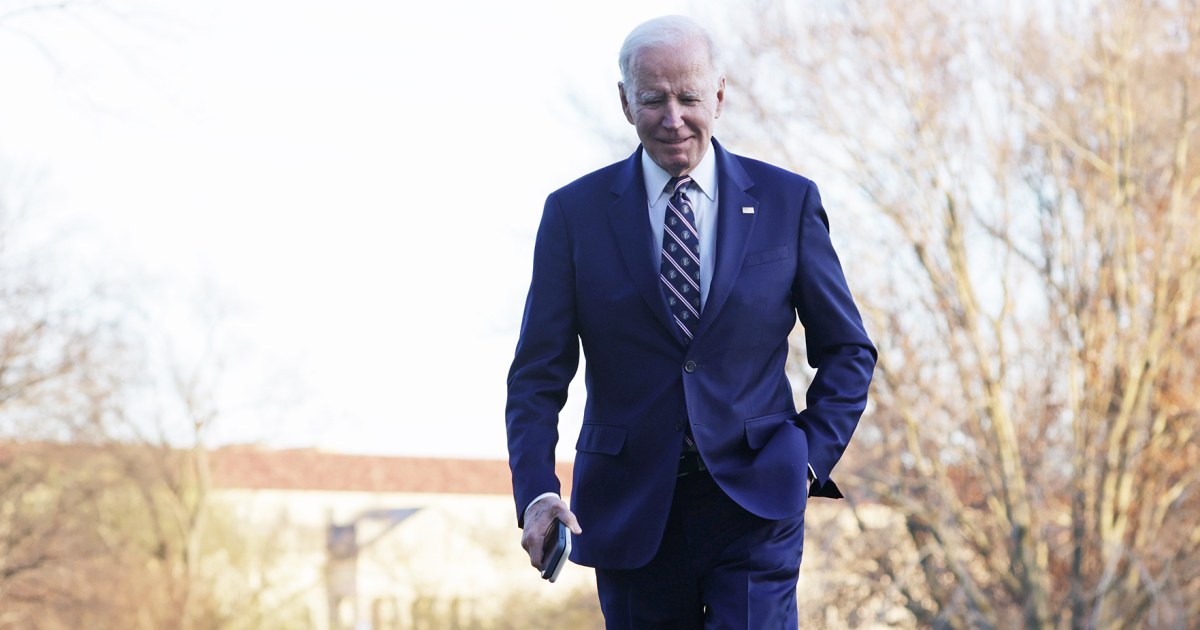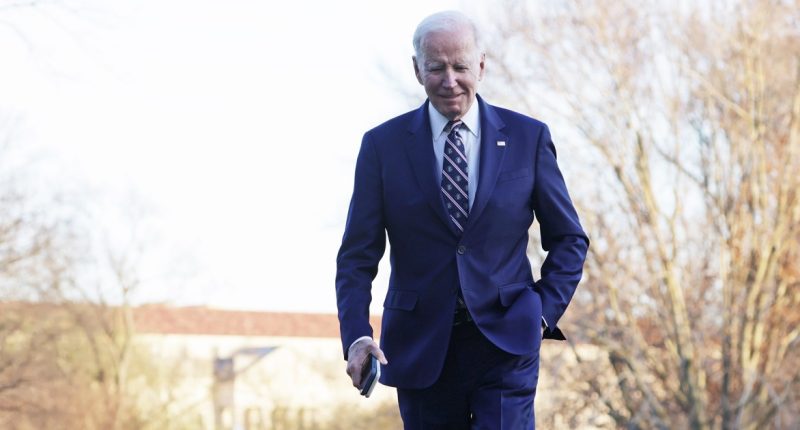
After having planted President Joe Biden’s flag in South Carolina this week with a direct appeal to Black voters, his campaign will continue its ramp-up this month with visits by Biden to Nevada and Michigan, each home to important Democratic constituency groups he needs to firm up ahead of November.
It’s a new phase of the campaign, advisers say, which reflects why Biden felt it was important to overhaul the Democrats’ nominating calendar — to prioritize the party’s more diverse coalition instead of predominantly white states like Iowa and New Hampshire, where Republicans are kicking off their fight.
“For these communities, the message that we have now is that, one, they are the ones that have the most at stake, and two, Joe Biden has done more for these communities than any other president or any other administration,” Quentin Fulks, Biden’s principal deputy campaign manager, said in an interview. “It would be foolish for us not to communicate with them out of the gate.”
In doing so, though, Biden is also having to confront directly some of the biggest political challenges he faces within his party before he can broaden his focus to the general election.
Biden could be courting Latino voters in Nevada while simultaneously negotiating a border funding bill that includes stricter immigration policies that are opposed by Hispanic leaders. And the campaign concedes it needs to take a delicate approach in Michigan, as the state’s sizable Arab American population has been critical of his staunch support for Israel.
Fulks said the campaign is ready to engage on those and other issues, both directly from Biden during his visits and through surrogates, direct communication and paid advertising.
“The president and our entire team understand that communities across the country — and in Michigan — are hurting. We can’t take a single voter for granted,” he said.
“Our style is that when people come to us on this, the president respects their passion,” he added, pointing to how Biden addressed a protester during his South Carolina speech as an example.
Nevada holds its primary on Feb. 6, three days after South Carolina. Michigan comes next in the new Democratic calendar, on Feb. 27.
Going forward, the campaign intends to build on its core argument — that Americans’ hard-fought freedoms are very much at stake in this election. “Freedom” was the first word Biden spoke in his re-election kickoff video in April and a theme of his speech Friday warning about Donald Trump’s threat to democracy.
“Democracy means having the freedom to speak your mind, to be who you are, to be who you want to be,” Biden said. “But if democracy falls, we’ll lose that freedom.”
Vice President Kamala Harris signaled during a trip to Atlanta on Tuesday how the campaign will broaden its freedom argument to key voting groups, saying there is a “full-on intent to attack fundamental freedoms and rights,” like “the freedom to have access to the ballot … for women to make decisions about their own body, the freedom of people to love who they love openly and with pride, the freedom of people to be safe from gun violence.”
Harris already this year has made a stop in Nevada to tout another powerful political coalition there — the Culinary Workers union, which represents casino workers and just successfully negotiated a new contract.
“The strength of working people is the backbone of the strength of our nation,” she said there last week.
The Biden campaign has argued that as important as immigration is, public polling and its own research show the economy as the top concern of Latino voters. In Nevada, focusing on gun violence is also a top concern after the massacre outside Mandalay Bay casino in 2017, the country’s deadliest mass shooting.
In Michigan, the campaign is also focusing on economic freedom and the dignity of work, Fulks said. Last year, Biden joined a United Auto Workers picket line as the union was engaged in negotiations with the Big Three automakers. The UAW, unlike many of the country’s largest unions, has not yet endorsed Biden, showing that the campaign still has work to do.
The campaign has rejected the idea that Biden is focused on those base groups out of weakness. Fulks said it instead is “a sign of respect,” taking a more holistic approach to them than Democrats have in the past — not just groups that are focuses of turnout efforts in the fall, but ones that need to be targets of persuasion efforts from Day 1.
In 2020, Biden carried both Nevada and Michigan, but by less than 3 percentage points. Only Pennsylvania, Wisconsin, Arizona and Georgia were closer among states Biden carried.
Source: | This article originally belongs to Nbcnews.com









